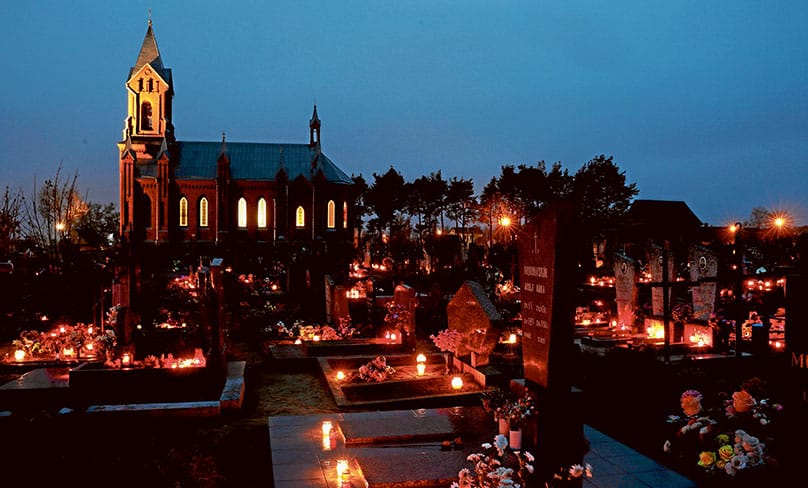
“My wife is from Spain and on All Saints Day she asked me why this feast is not a Holy Day of Obligation in Australia as it is in Spain. Why are there differences from one country to another?”
The matter of holydays has a long and interesting history. In the Middle Ages there were very many days on which attendance at Mass was obligatory apart from Sundays, and these were reduced in 1642 by Pope Urban VIII to thirty-six. Early in the 20th century that number was reduced to eight by Pope Pius X, but it was raised again to ten in the 1917 Code of Canon Law. Nonetheless, individual bishops could decide how many of them to observe in their own dioceses.
The 1983 Code of Canon Law has kept the number at ten. They are “the Nativity of Our Lord Jesus Christ, the Epiphany, the Ascension of Christ, the feast of the Body and Blood of Christ, the feast of Mary the Mother of God, her Immaculate Conception, her Assumption, the feast of St Joseph, the feast of the Apostles Saints Peter and Paul, and the feast of All Saints” (Can. 1246, §1).
“However, the Episcopal Conference may, with the prior approval of the Apostolic See, suppress certain holydays of obligation or transfer them to a Sunday” (Can. 1246, §2).
In view of this last paragraph, we can explain the differences between one country and another. In the Vatican City itself, for example, although not in the rest of the diocese of Rome, and in the diocese of Lugano in Switzerland, all ten holy days are observed. In other countries, the numbers are smaller and they vary considerably.
In Australia before the 1983 Code of Canon Law there were five holy days of obligation: Christmas, New Year’s Day (at first the feast of the Circumcision of Our Lord, later the feast of Mary the Mother of God), the Ascension of Our Lord, the Assumption of Our Lady and All Saints’ Day.
When the new Code came into force, the Australian Catholic Bishops Conference in 2001 reduced the number of holy days to two: Christmas and the Assumption of Our Lady (August 15).
In addition, the Australian bishops transferred some of the holy days listed in the Code of Canon Law to a Sunday: the feasts of the Epiphany, the Ascension and the Body and Blood of Christ (Corpus Christi), so that these feasts could be more easily celebrated by all the faithful.
In Spain, where your wife came from, there are seven holydays: Christmas, Mary the Mother of God, Epiphany, St Joseph, the Assumption of Our Lady, All Saints’ Day and the Immaculate Conception of Our Lady.
In the United States, there are six: Christmas, Mary the Mother of God, the Ascension, the Assumption of Our Lady, All Saints’ Day and the Immaculate Conception.
In Italy, there are also six: Christmas, Mary the Mother of God, the Epiphany, the Assumption of Our Lady, All Saints’ Day and the Immaculate Conception of Our Lady.
In Ireland, too there are six: Christmas, the Epiphany, St Patrick’s Day, the Assumption of Our Lady, All Saints’ Day and the Immaculate Conception.
Interestingly, in Malaysia and Singapore Ash Wednesday is a holy day of obligation.
In the Eastern Rite Catholic Churches, the Code of Canons for the Eastern Churches stipulates that there are to be five holy days common to all the Churches: the Nativity of Our Lord, the Epiphany, the Ascension, the Dormition of Our Lady and the feast of Saints Peter and Paul (cf. CCEO, can. 880). The Dormition of Our Lady celebrates her falling asleep, or death, and subsequent assumption, and it is celebrated on August 15.
A question many people ask is whether they are bound to observe the holy days of their country when they are travelling or living overseas. In the case of those travelling it would seem logical that they should endeavour to observe the holy days of their own country but they would not be bound by the holy days of the country in which they happen to be at the time. But when they have taken up residence in a new country, they are bound by the holy days of their new country.
